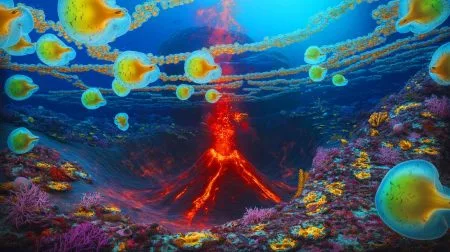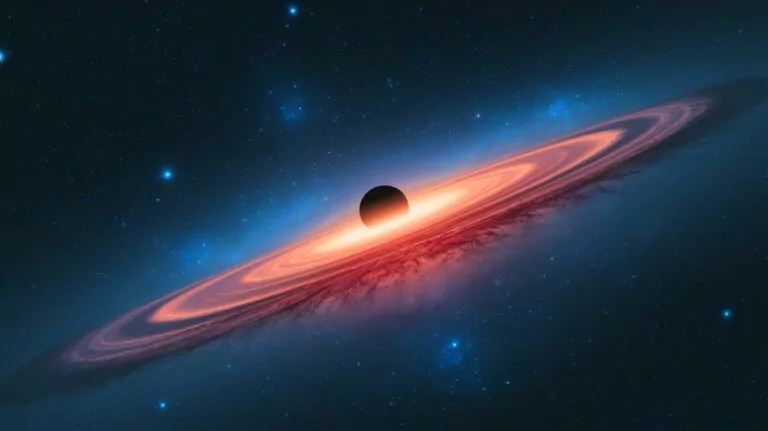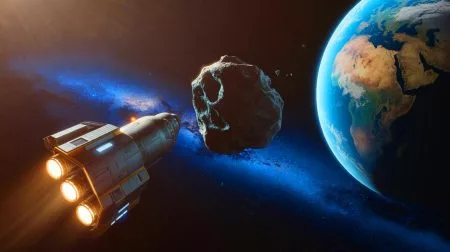| IN A NUTSHELL |
|
The universe is full of mysteries, and one of the most intriguing is the presence of black holes. Typically, black holes are identified by their interactions with companion stars. However, scientists have recently confirmed the existence of a solitary black hole drifting through space, a discovery that challenges previous understandings and opens up new possibilities in astronomical research. This groundbreaking revelation was detailed in a paper published in The Astrophysical Journal, following years of debate and analysis.
New Evidence Supports Earlier Claim of a Lone Black Hole
The discovery of a lone black hole is a significant milestone in the field of astronomy. Traditionally, black holes are detected through their effects on nearby stars, such as distorting light. However, this newly confirmed black hole was detected through a unique method called microlensing, where the black hole briefly passed in front of a distant star, altering the star’s light in a way that revealed its presence. Initial observations of this object were made using data from the Hubble Space Telescope collected between 2011 and 2017.
In more recent studies, researchers analyzed additional data from both Hubble (2021–2022) and the Gaia space probe, concluding that the object has a mass approximately seven times that of the sun. This mass is too large for it to be a neutron star, making a black hole the most plausible explanation. The research team confidently stated that this is the first and only unambiguously discovered isolated stellar-mass black hole to date.
Independent Analysis Supports Black Hole Identification
In a dramatic turn of events, a second research team, which initially argued that the object was a neutron star, revised their findings in 2023. After further scrutiny and analysis, they concluded that the object is indeed a black hole. They estimated the mass to be around six times that of the sun, which, despite a higher degree of uncertainty, aligns with the seven solar mass estimate. This concurrence between independent studies strengthens the case for the object being a solitary black hole.
The confirmation of this lone black hole is not just a validation of extensive years of observations but also a crucial step forward in understanding these elusive cosmic phenomena. It paves the way for more discoveries, propelling scientists to seek out other isolated black holes in the vastness of space.
Technological Advances in Black Hole Detection
The confirmation of this solitary black hole underscores the importance of technological advancements in astronomy. The use of sophisticated tools such as the Hubble Space Telescope and the Gaia space probe was instrumental in uncovering this cosmic mystery. These technologies enabled scientists to gather precise data and conduct detailed analyses that were previously unattainable.
Looking to the future, the scientific community is optimistic about the upcoming Nancy Grace Roman Space Telescope, set to launch in 2027. This advanced telescope is expected to further revolutionize our understanding of black holes by potentially uncovering more isolated black holes across the galaxy. As technology continues to evolve, so too does our ability to explore and understand the universe.
The Implications of Discovering Solitary Black Holes
The discovery of a solitary black hole has numerous implications for the field of astronomy. It challenges existing models of black hole formation and suggests that these objects could be more common than previously thought. This revelation invites researchers to re-evaluate their understanding of black holes and consider the possibility of other unobserved cosmic phenomena.
Moreover, the confirmation of a lone black hole highlights the need for continued exploration and observation. It serves as a reminder of the vast unknowns that still exist within our universe and the potential for uncovering new and exciting mysteries. As researchers continue to push the boundaries of space exploration, the possibilities for discovery are limitless.
The confirmation of a lone black hole drifting through space marks a significant achievement in the field of astronomy. It validates years of research and opens the door to future discoveries that could reshape our understanding of the cosmos. As we continue to explore the universe, one can’t help but wonder: what other hidden wonders await our discovery?
Did you like it? 4.4/5 (28)








Wow, a rogue black hole! That sounds like something out of a sci-fi movie! 🌌
Has anyone considered the possibility that this “rogue” isn’t alone? 🤔
Why is it so surprising to find a black hole by itself? Don’t they prefer solitude?
This discovery is mind-blowing! Thanks for sharing such an incredible article. 🚀
Wait, how do they even find something that’s essentially invisible?
Should we be worried about this rogue black hole coming closer to Earth?
Awesome read! Can’t wait for more discoveries like this. 👍
Does this mean we’ll find more “rogue” black holes soon?
The universe is so mysterious. What else could be out there? 🌌
I’m not convinced. How reliable are these measurements?
Incredible work by the scientists! It’s amazing what technology can do. 🔭
So does this change how we think about black holes entirely?
I’m skeptical. Could it be something else entirely? 💭
What exactly is microlensing again? Can someone explain?
This is why I love astronomy. There’s always something new to learn! 🌟
How long before we can study this black hole with more detail?
Is this black hole in danger of colliding with anything?
Thanks for the detailed explanation—fascinating stuff!
It’s hard to wrap my head around the idea of a black hole just drifting alone.
Why hasn’t this been discovered earlier if it’s such a big deal?
What if we find an entire cluster of rogue black holes? 😱
Does this discovery affect the current black hole theories?
This article is a great read! Keep up the good work. 📚
Are there any risks associated with this black hole drifting through space?
I’m curious, how far away is this black hole from Earth?
Does this mean our understanding of the universe is about to change?
Could this black hole have been ejected from a galaxy? 🤔
I hope they name it Roomba.